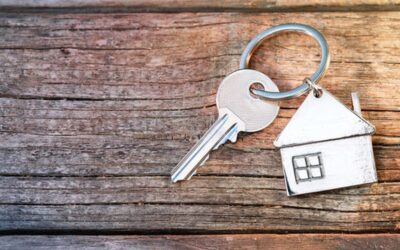As veterans of higher education, physicians often anticipate that their children will carry the torch of...
Financial Considerations of Buying a Home
You May Also Like…
There is a lot to think about when you buy your first home. What colour should you paint the living room? What should the extra bedroom be used for? A home office? A gym? Or maybe a nursery?
Outside of aspirational objectives, there are many practical matters that need to be considered. This article provides a basic overview of some of the financial considerations of purchasing a house.
Down Payment:
How much to put down?
To qualify for a mortgage, you will need to make a down payment equal to at least 5% of the purchase price of the property.
If you put less than 20% down, you are required to pay for mortgage insurance through CMHC (Canada Mortgage and Housing Corporation).
If you can put down 20% or more you can avoid the CMHC insurance.
Saving for a Down Payment
You should also consider saving for your down payment by contributing to your RRSP (to use the Home Buyers Plan) or the First Home Savings Account (available starting 2023).
- RRSP: If you have funds in your RRSP, you can borrow those funds using the ‘Home Buyers Plan’ (HBP). You and your spouse can each withdraw up to $35,000 from your RRSP accounts on a tax-free basis. This amount is then repaid to the RRSP over 15 years.
- FHSA: The First Home Savings Account is a tax-deductible savings account that allows first time Canadian home buyers to save up to $40,000 for a down payment. Contributions to this account offer a tax deduction on your personal tax return. Unlike the HBP, withdrawn funds never need to be repaid. Effectively, this allows you to put $40,000 of earnings towards a down payment, which are never taxable to you.
To learn more about the Home Buyers Plan and FHSA, click here: https://bokhaut.ca/fhsaupdates/
Deposit and Closing Costs:
So, you have all the funds required to make a down payment on the house of your dreams, but do you have cash available to make a deposit at the time of the offer? What about the closing costs?
Deposit
When you make an offer on a house, you are encouraged to pay a deposit. The deposit shows the seller that you are serious about the purchase and that you intend to complete the deal. There is no set amount required for a deposit, but if there are multiple offers, a large deposit may tip the scales in your favour.
To make a deposit, you would need cash available in your chequing account. If all your savings for the house are in the RRSP or FHSA, this may restrict your ability to do so, as there can be processing delays on withdrawing the funds.
Closing Costs – Offer Has Been Accepted
If your offer has been accepted, you must have, by the date of possession, financing in place and funds to pay the closing costs. The closing costs include (but are not limited to) Land Transfer taxes, legal fees and CMHC insurance fees (if your down payment is less than 20%).
Land transfer taxes in Manitoba are calculated on a graduated scale, with 0% on the first $30,000, increasing up to 2% on any amount over $200,000.
- For example, if the purchase price of the house is $500,000, land transfer taxes in Manitoba would be ~$7,650.
- You can calculate land transfer tax in Manitoba using the following link: https://www.gov.mb.ca/finance/other/landtransfertax.html
Legal fees vary based on the law firm but are generally several thousand dollars.
If you are purchasing a condo, there may be additional fees such as a contribution to the reserve fund.
Fees can add up quickly, so it’s important to get an idea of what the ancillary costs are before you make an offer.
Tax credits and rebates:
- If you are a first-time home buyer, you are eligible to claim the ‘First Time Home Buyers’ Tax Credit. This is claimed on your personal tax return and provides a benefit of $1,500 in tax savings.
- If you build a new house or buy a newly built house, there will be GST charged on the purchase. You can claim a GST rebate to recover some of the GST paid. In Manitoba you can claim a rebate for 36% of the GST paid up to a maximum of $6,300. Often if you purchase the house from a builder, the builder will help you apply for this rebate. If the property Is located in Ontario or Nova Scotia, there may be additional rebates available through the provincial governments.
- There should be no GST charged on the purchase of a pre-owned home, unless the home has been substantially renovated. A substantial renovation is considered to have taken place if all or considerably all the interior of the building has ben replaced.
If you are a physician and have questions on the above, please contact us.
* This article was prepared on October 22, 2022. Content is for informational purposes only and is not intended to be used as professional advice. Each taxpayer’s circumstances are unique. Bokhaut CPA makes no representation as to the accuracy and completeness of the information in this article and will not be liable for any errors or omissions in this information.

You May Also Like…
Fall Economic Update 2022 – A 5 Minute Summary of the Relevant Provisions for Physicians
Overall Analysis: New details were scarce in the 2022 Fall Economic Statement; for the most part, the Honorable Chrystia Freeland provided more detail on the 2022 Budget Proposals. In summary, the provisions most relevant for physicians were as follows: PROPOSAL:...
Moving Expenses: When are they deductible for physicians?
Are you a physician who moved in 2022, or are considering a move in 2023? If so, your moving expenses may be deductible for tax purposes. Are you eligible to claim moving expenses? To claim moving expenses, you must meet the following criteria outlined by CRA: One...
First Home Savings Account (FHSA) – Newly Announced Updates to the Program
This article has been updated for the draft legislation proposals from the Department of Finance ‘Design of the Tax-Free First Home Savings Account’ Backgrounder, released August 9, 2022.. On April 7, 2022, the Federal Government released a budget with two new...
The Self-Employed Physician
How to Organize Yourself for Personal Tax Filing Step 1: Be Aware of Your Income & Expenses As a self-employed physician, fee-for-service income can come from a variety of sources, including various health authorities (WRHA, NRHA, IERHA, etc.),...
4 Common Tax Questions from Manitoba Resident Physicians
The most frequent questions we receive from resident physicians relate to their ability to claim various tax credits and deductions. This is often complicated by their participation in various assistance or rebate programs and the continuing cost of their medical...







